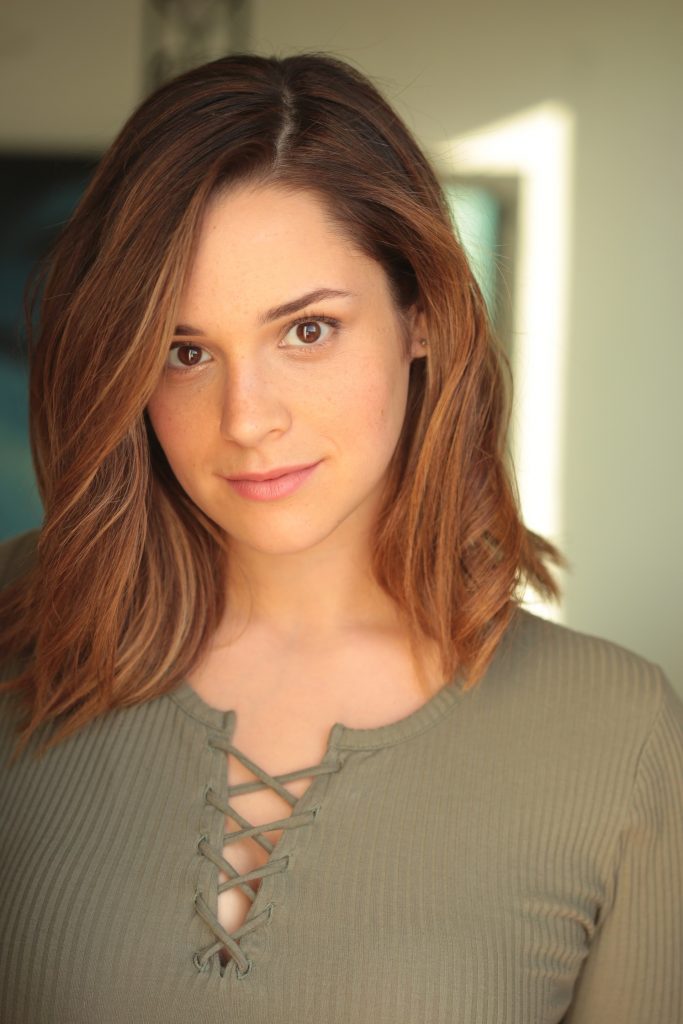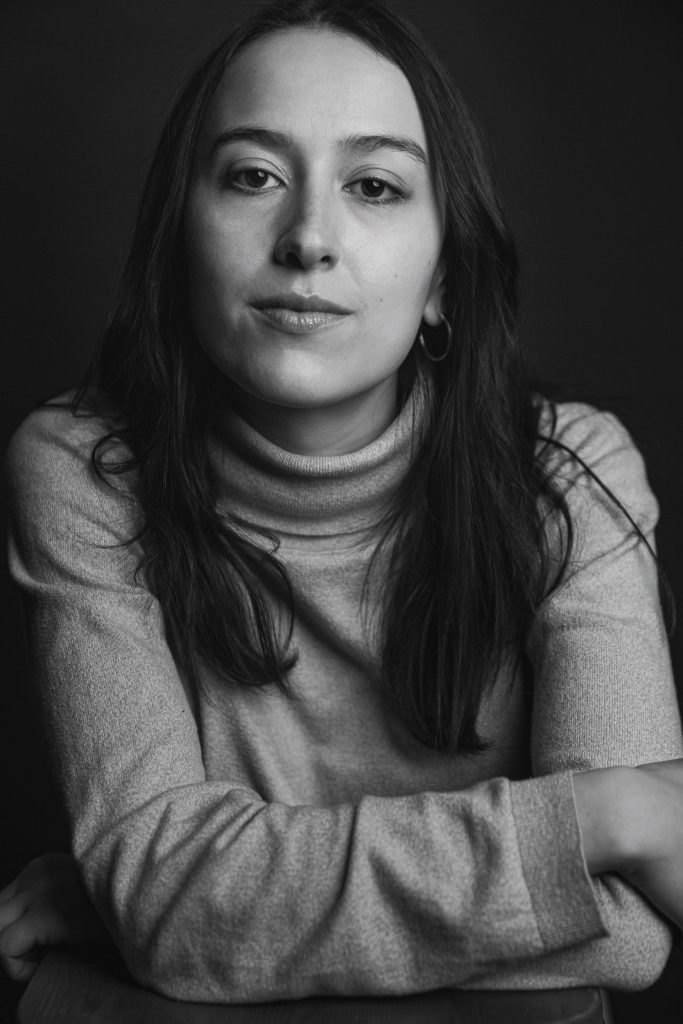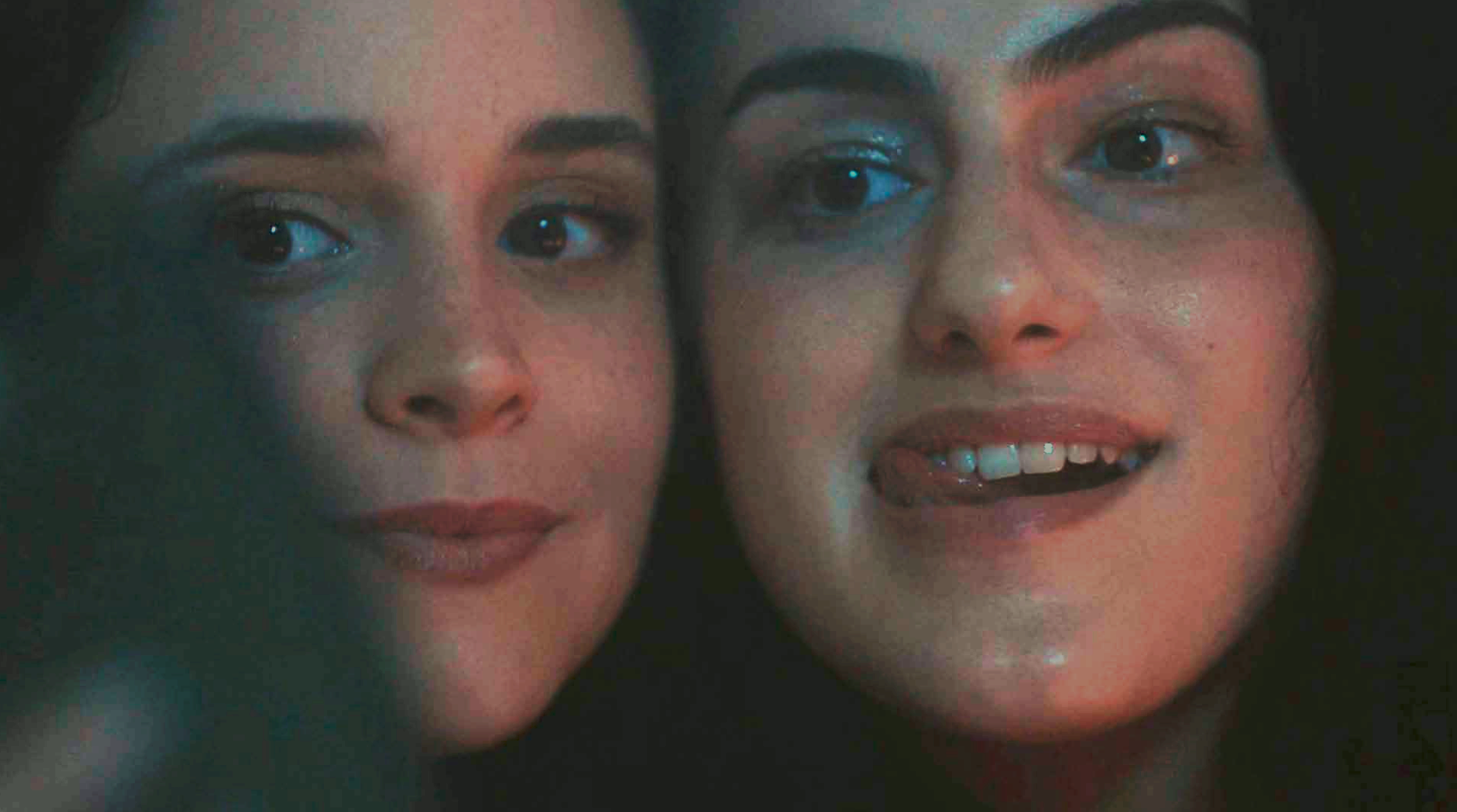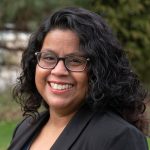Writer and producer Ali Edwards (Alan at Night, Voce) knows what it’s like to be an aspiring artist in New York and the lead character in her first feature film, August at Twenty-Two. Cal (played by Ali Edwards), was written from a deeply personal perspective. Directed by Sophia Castuera, it is a coming-of-age story, but not for your typical teenager. There’s no prescribed age for self-actualization and with her all-female crew and herself in the lead role, Edwards explores many of the issues of being an insecure queer artist just trying to fit in with her friends, let alone the larger community.
Also the Head of Development at Amy Berg’s Disarming Films (Phoenix Rising, The Case Against Adnan Syed) and co-founder of Lady Parts Productions (a company focused on telling the female narrative and fostering positive social change through their projects), Edwards explores a variety of topics in her work. We chatted about some of these projects and about the experience of writing (and portraying) such a personal character in her debut film.
This being your first feature, tell me about how you approached the process of writing.
This film started in things like diary entries. It’s a super personal movie to me. I feel like it’s an exaggerated, fictionalized version of what I was dealing with when I was in my early 20s… moving to New York, having no idea how to get anything…and wanting everything. So, it started in my diary entries. I was just having such big feelings, and the only way that I could process them was to write.
What was it like to take those very personal experiences and put them out there for everyone to see?
It’s loosely based on my own misadventures of being a lost, hungry, optimistic kid. It was a very personal story, and I’m really grateful to my community who were in many ways part of making it happen. Many of the characters are based off of my real-life friends and they were part of the film in certain ways. So that was really lucky.
It was definitely tricky because when you’re writing things that are based off of your real life. There’s a lot of sensitivity that comes with that. So, I had to be really clear that this was Cal’s perspective, not that of others. And so, if at any time another character looks bad, it’s from her perspective. The way that she’s viewing it rather than that person or character actually being bad. It’s really her own issues that we’re figuring out.

Ali Edwards
My work is really inspired by the late 90s, early 2000s mumblecore movement. I really love naturalism and overlapping dialogue improv within scenes. A few films that really came to mind while making it were Hannah Takes the Stairs, Nights and Weekends. I absolutely am obsessed with that film. Tiny Furniture was also a big influence. I think that the film has a lot in common with that one.
There actually aren’t that many female-led films – female-written, with a female-lead, and female-directed. I feel it is a genre of its own. There are plenty of women working in film, but not enough representation.
Tell me about fleshing out the character of Cal and how you want the audience to perceive her.
I have such affinity for her. She has no idea how to get anything she wants. And she wants so much.
A lot of my crafting of Cal was based on, “What is me at my absolute worst? What is me if I didn’t have amazing friends? What would it be like if I had no artistic community and I had to start from scratch?” But most importantly, I think Cal is just deeply insecure. So, from a writing perspective, I approached every scene of her walking into a room with her thinking, “Everybody here hates me and I have to get everyone here to like me.”
As an actor, it was difficult to play that because I was always buzzing with that insecurity even though I was making this movie with my friends. But living with that kind of heaviness all day, every day, was really challenging. Coming away from it many years later, I have so much love, appreciation and, honestly, a little bit of pity for Cal because she’s trying so hard and not really doing anything right.
It’s a coming-of-age story, but set a bit later in life. Tell me about reinventing the genre for an older protagonist.
Telling this story at age twenty-two is really different than telling it at sixteen. I think that if it were told at sixteen, it would have been a lot about Cal coming out and realizing that she’s bisexual and so on. But because we’re seeing her at twenty-two, she’s already had that self-discovery. She’s clear on her sexuality, so that takes the back seat. I love that about our movie – it’s a queer film without being a film about queerness, which I think is rare. Usually we see coming out films, not “This is just the reality of who they are.” I think that was the major part of why this is different from a traditional queer coming-of-age film. There’s no coming out. It’s a coming to self.
The script was written a few years ago. What led to your eventual connection with Sophia? How did your visions align and why was she the right person to make this film with you?
Sophia and I went to Boston University together and we were both film and TV majors. We were in different theater groups and our lives were extremely parallel.
When I moved to New York, I started working on a web series that I wrote and I put out a casting call. Sophia submitted and she was perfect so I cast her. At this point I was already writing August at Twenty-Two. It was kind of a match made in heaven. We would sit in coffee shops together and workshop the script. When it came time to choose a director, I knew that I did not want to direct it. Cal is so much work and I really wanted my heart to be on screen rather than behind the camera during production. Sophia knew the script back yo front, and she knew exactly how I had envisioned the film. So it was a no-brainer to bring her on to direct. We had collaborated before and had a good rapport. I would write and she would act, or I would act and she would direct. On this one, it was a perfect conglomeration of collaboration.

Sophia Castuera
If the intention was always for you to play Cal, did that affect how you wrote her character or any of the scenes?
Absolutely. Cal’s speech patterns are quite similar to mine. Her best and worst qualities are representative of my best and worst qualities during that time in my life. She is definitely fictionalized in a lot of ways, but there were other little things. There are so many love sequences and those were really fun to write knowing that I was going to act in them. As I was writing, I could play my way through them. I come from an acting background, so with almost every script or scene that I approach, I’m acting in it in my head, even if I’m not that character. It’s a lot of fun and I think it helps make the dialogue a little more realistic.
What are some of the themes you explore in the film?
We’re exploring queerness. We’re exploring coming of age. We’re exploring, in all aspects, romantic relationships, platonic relationships, familial relationships, working relationships. The blurriness and elasticity of relationships. We’re exploring New York, of course. And what it means to be a young artist when it feels like everyone around you is moving ahead and you’re not.
Tell me about your work at Disarming Films.
I am very lucky to work at Disarming Films. I’m primarily in documentary, but we do some scripted projects as well. I’m also a producer there and Head of Development.
I think that one thing that Disarming and Amy Burke do really well, and something that I really care about, is naturalism in filmmaking. Disarming’s special touch is a very human, very naturalistic approach to filmmaking. We tell a story, but we really want to be exploring it from a human perspective. We take these really big subjects and really big themes, but we break them down to who the people are behind them.
I think I carried that with me into my screenwriting career and funneled that idea into my writing. I’m most interested in stories that make me feel like a human. I’m not a huge high action, VFX and CGI kind of girl – I really like a quiet relationship drama. I’m lucky enough that even though we have these really dramatic projects with huge issues that are very social justice-oriented, at the end of the day it really does boil down to “who’s the human behind this?”
Tell me about co-founding Lady Parts Productions. How have you seen the industry change and do you still encounter barriers in telling female-focused stories?
I co-founded it with Mary Elizabeth Monda (who produced August at Twenty-Two) and Sophia, who directed the film.
I think there’s definitely more visibility now with feminist filmmaking. You look at Barbie and it’s surprisingly radical. My hope for the future of filmmaking is that feminist films can just be films, you know? It doesn’t have to be, “This is specifically a feminist movie.” I think it does pigeonhole us, but there’s no way around that right now. With our film, we shot with an entirely female crew, which is so rare and so amazing. But I hope that we continue moving forward to the point where it becomes so common to have movies that are directed by women that it’s not “female-directed” and just “is”. We’re just as entwined in the industry as men are. It’s going to take a lot of time and it’s going to take a lot of people with power providing opportunities for women of all ages, of all colors, of all shapes, sizes and races.
Making movies is such a privilege. To get to make any film means that you’re in a pretty good place. I’m just hopeful that I can keep doing it and I feel very lucky that women like Greta Gerwig and Desiree Akhavan and all these amazing female filmmakers that came before me are paving the way to make it a little bit more common and a little bit easier to get there.
Tell me about Provincetown Film Festival and why it was a good fit for your film.
Provincetown Film Festival was beyond a dream come true. I applied for it thinking there was no way we’d get in. It’s a really prestigious festival, and our film was made by three twenty-four-year-olds. It was made with no money, just my savings, and whatever I made babysitting!
Provincetown is geared towards queer filmmaking, so to also be in a community like that where I was going to mixers and everyone there was queer. That’s just not an experience that I get in the filmmaking community all that often, so getting to collaborate with folks like me was really exciting.
Getting into the festival was a real “pinch me” moment; and being there and getting to meet all of these amazing, established filmmakers made me realize that you don’t need $1,000,000 to make a movie. You just need to work really hard and make it happen.

